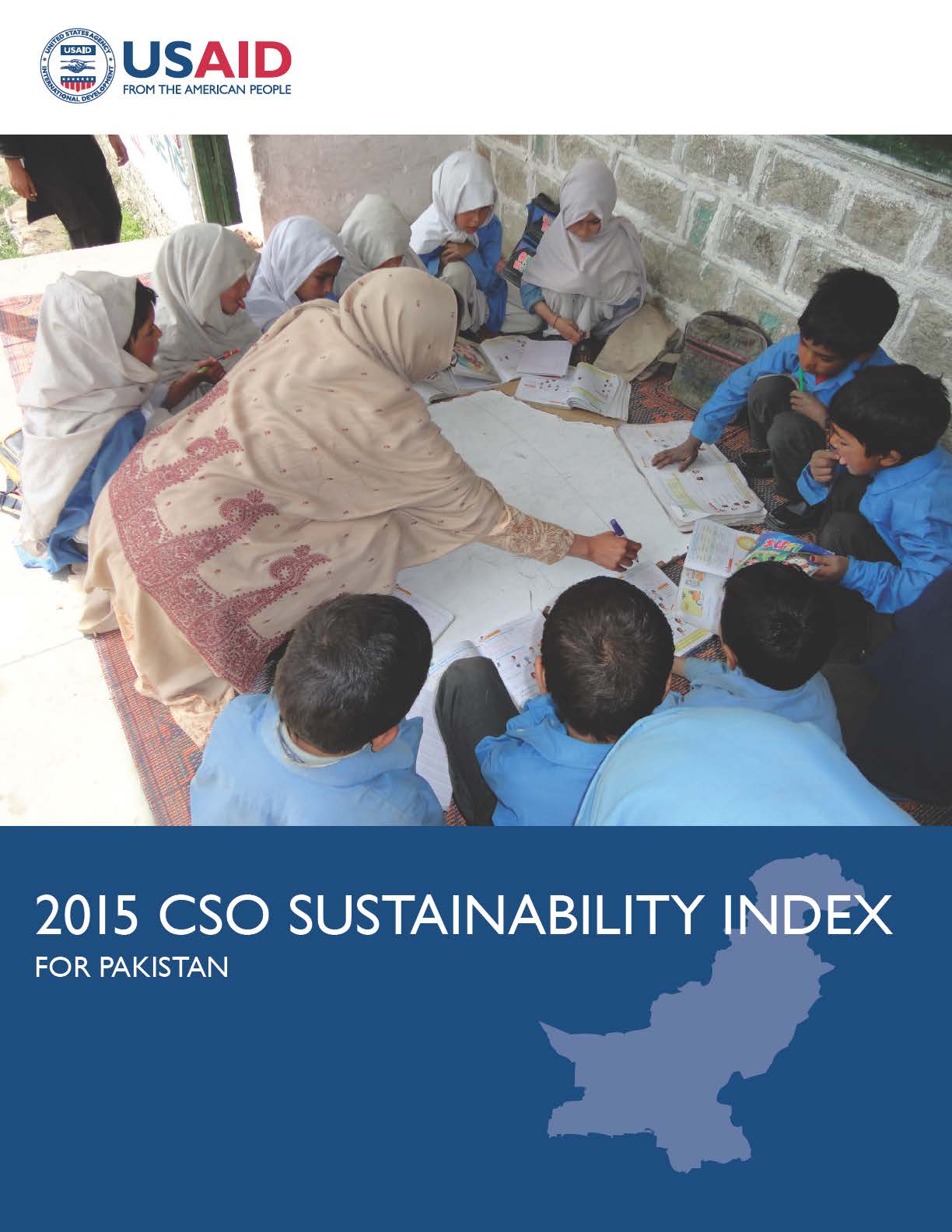- What We Do
- Agriculture and Food Security
- Democracy, Human Rights and Governance
- Democracy, Human Rights and Governance Strategy
- Supporting Free and Fair Elections
- Supporting Vibrant Civil Society & Independent Media
- Protecting Human Rights
- Promoting Accountability & Transparency
- Importance of Democracy, Human Rights, & Governance to Development
- Countering Trafficking in Persons
- Economic Growth and Trade
- Education
- Ending Extreme Poverty
- Environment and Global Climate Change
- Gender Equality and Women's Empowerment
- Global Health
- Water and Sanitation
- Working in Crises and Conflict
- U.S. Global Development Lab
BACKGROUND & APPROACH
The 2015 CSO Sustainability Index for Pakistan ![]() (pdf - 3 MB)
(pdf - 3 MB)
The 2015 CSO Sustainability Index (CSOSI) for Pakistan looks at the sustainability of the civil society sector based on an assessment by local civil society representatives and experts. The CSOSI is an important tool for civil society organizations (CSOs), governments, donors, and academics for understanding and measuring the sustainability of the CSO sector. This publication complements other editions of the CSOSI which together now cover 71 countries and territories in Central and Eastern Europe and Eurasia, Sub-Saharan Africa, the Middle East and North Africa, and Asia. The Index scores seven interrelated dimensions of CSO sustainability: Legal Environment, Organizational Capacity, Financial Viability, Advocacy, Service Provision, Infrastructure, and Public Image. These scores are averaged to produce an overall score for CSO sustainability. Details of the methodology can be found at http://www.usaid.gov/pakistan/civil-society-sustainability.
FINDINGS
It is difficult to assess the magnitude of civil society in Pakistan, since there is no comprehensive database of CSOs and a large number of CSOs remain unregistered. According to a statement by the Minister of Social Welfare and Special Education in 2010, there were approximately 100,000 CSOs and community-based organizations (CBOs) operating in the country, 60,000 to 70,000 of which were registered. At the same time, preliminary findings of a mapping study being conducted by the Pakistan Centre for Philanthropy (PCP) suggest that at least 80 percent of registered organizations are inactive, indicating that the number of active registered CSOs in the country is much smaller.
CSO sustainability has changed little in the five years that the CSO Sustainability Index for Pakistan has been carried out. The most significant changes have been in the legal environment. Over the past few years, the government has introduced increasingly stringent measures on CSOs in response to high-profile terrorist attacks and allegations of international interference in the country. In particular, new regulations seek to regulate the flow of foreign funding and the work of international NGOs. At the same time, the sector’s public image deteriorated somewhat in 2015 as the public, media, and government all increasingly associate CSOs in certain parts of the country with serving foreign interests.
Other dimensions of sustainability have changed little over the past half-decade. Local sources of funding are scarce. Instead, many CSOs continue to rely on short-term, project-based donor funding in order to survive. As a result, they lack long-term strategic plans and generally have broad missions. While CSOs continue to advocate on various issues and campaign on a large scale, the political context limits CSOs’ ability to influence policy. CSOs continue to provide diverse services in various sectors, including health, education, water, and sanitation, and are the primary responders to crises and natural calamities, including the floods, heatwave, and earthquake that plagued the country in 2015. CSOs, along with the government, responded immediately to these calamities, evacuating more than one million people and establishing over 800 relief camps. The government continues to recognize the role of CSOs in promoting the welfare of the country. Provincial governments in particular engage in public-private partnerships (PPPs) with various CSOs, particularly in the education and health sectors, to increase the volume and effectiveness of service provision throughout the country.








Comment
Make a general inquiry or suggest an improvement.